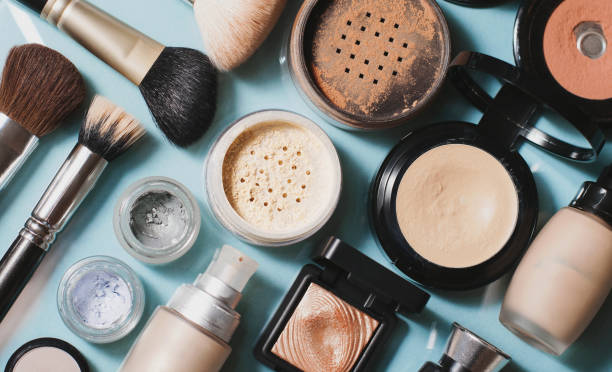Can Infections be Transferred from Sharing Makeup?

Can Infections be Transferred from Sharing Makeup?
Sharing makeup can be a fun way to bond with friends or family, but it's essential to consider the potential risks involved. One of the primary concerns of sharing makeup is the transmission of infections. In this comprehensive guide, we'll explore infections that can be transferred through shared makeup items, the types that pose a risk, and how to minimize these risks while still enjoying your makeup routine.
Understanding the Risks
Before delving into the details, it's crucial to understand that makeup can harbor microorganisms like bacteria, viruses, and fungi. When you share makeup with someone else, you can unknowingly expose yourself to these microorganisms, increasing the risk of infection. Let's break down some of the ways infections can be transferred:
- Direct Contact: When you use a makeup product that has been in direct contact with someone else's skin or mucous membranes (such as the eyes or lips), you're at risk of infection. Bacteria and viruses can be transferred from person to person through direct contact.
- Cross-Contamination: Makeup products, especially those in jars or pots, can become contaminated when used. For instance, dipping a contaminated brush or applicator into a product can introduce bacteria into the makeup. This contaminated makeup can then be transferred to someone else's skin, leading to potential infections.
- Skin Conditions: Sharing makeup can exacerbate or spread existing skin conditions, such as acne or cold sores. When makeup brushes or sponges come into contact with affected areas, they can carry the microorganism present to other parts of the face or another person's skin.
Types of Infections to Be Aware Of
Several types of infections can be transmitted through shared makeup items. These include:
- Bacterial Infections: Bacteria like Staphylococcus aureus and Streptococcus can thrive in makeup products. When these bacteria come into contact with your skin, they can cause skin infections, acne, or even more severe conditions.
- Viral Infections: Viruses like herpes simplex (responsible for cold sores) and the human papillomavirus (HPV) can be transmitted through lip products. Sharing lipsticks or lip balms can put you at risk of contracting or spreading these viruses.
- Fungal Infections: Fungi, such as yeast and molds, can grow in makeup items, particularly those with moisture. These fungi can lead to fungal skin infections when transferred to your skin.
- Eye Infections: Eye makeup, especially mascara and eyeliner, poses a risk of transferring bacteria to your eyes, potentially leading to conjunctivitis or other eye infections.
How to Minimize the Risks
While the risks associated with sharing makeup are real, you can still enjoy makeup with some precautions. Here are some practical steps to minimize the risks:
- Avoid Sharing Makeup: The most effective way to prevent infection is not to share makeup items, especially those that come into direct contact with the eyes, lips, or open wounds.
- Use Disposable Applicators: When applying makeup on others (e.g., professional makeup artists), use disposable applicators like cotton swabs or disposable lip brushes to avoid direct contact with the skin.
- Regularly Clean Your Makeup Brushes: If you must share makeup brushes with others, clean them regularly with a brush cleaner or mild soap and warm water. Make sure they are completely dry before using them again.
- Avoid Sharing Lip Products: Lipsticks, lip balms, and lip glosses should not be shared, as they pose a high risk of transmitting viral infections. Use disposable lip brushes or spatulas for clients if you're a makeup artist.
- Check for Expiry Dates: Makeup products do have a shelf life. Using expired makeup can increase the risk of infection, as preservatives may no longer be effective.
- Pay Attention to Your Skin: If you develop unusual skin reactions or infections after using shared makeup, consult a healthcare professional promptly.
In conclusion, while makeup can enhance your beauty and boost your confidence, sharing makeup items can pose risks, including the transmission of infections. Bacteria, viruses, and fungi can thrive in makeup products and be easily transferred from person to person. To enjoy makeup safely, it's best to avoid sharing, use disposable applicators when necessary, and maintain good hygiene practices. By following these precautions, you can continue to enjoy the world of makeup without compromising your health and well-being.
